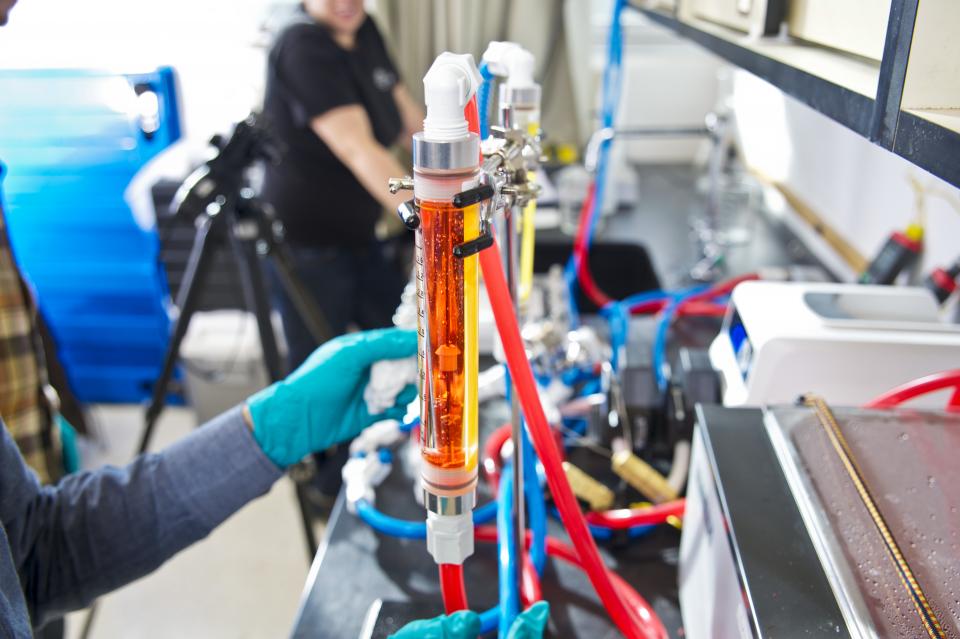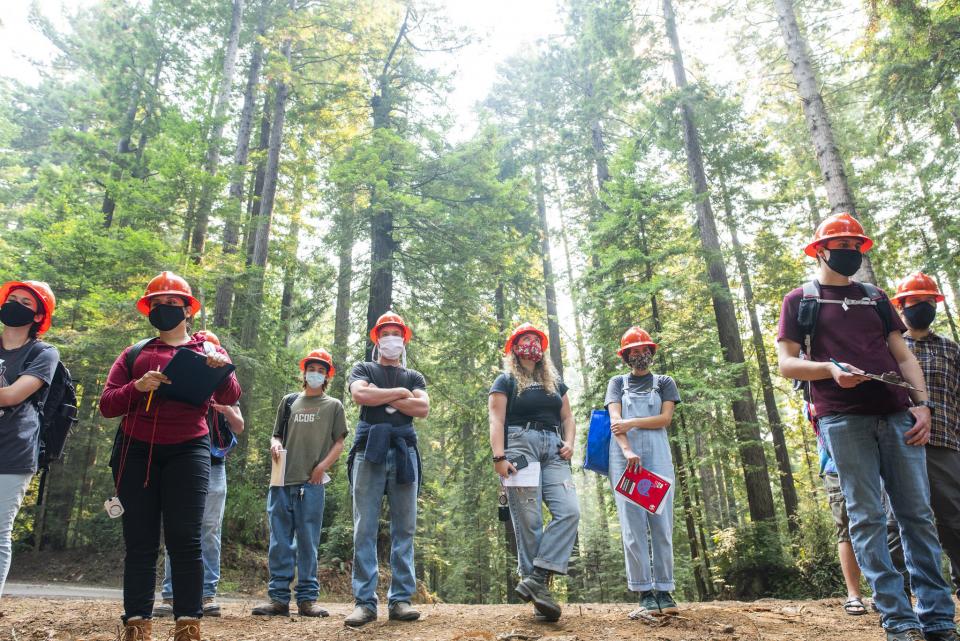Thesis/Project Planning
If your program requires a thesis or project, this will be the culminating experience of your graduate program. Work with your committee or advisor to develop a plan, get your research approved and start to put together your thesis or project.
Starting Your Research
Starting Your Research
The Humboldt Library has a dedicated Research Desk to help you learn how to navigate the library's databases and resources. They also offer workshops on how to use library resources and get started on your research.
You may want to consider using a Citation Management System to organize the articles you will be using and citing in your thesis/project. Humboldt library offers short workshops (called SkillShops) to help you learn programs like Zotero or OneNote to keep your research organized.
Research Approval
Research Approval
If you plan to conduct research involving a human subject, you will need to submit a proposal to the Institutional Review Board (IRB).
If you plan to conduct research involving non-human vertebrates, you will need to submit a proposal to the Institutional Animal Care and Use Committee (IACUC).
If you plan to use secondary data or research, you may be exempt from needing IRB or IACUC approval. Check the IRB's Open Data Sources.
Starting Your Thesis/Project
Starting Your Thesis/Project
Many programs require a formal proposal before you begin writing your thesis/project. Check with your advisor or Graduate Coordinator as you develop your plan.
Check your program's graduate handbook to make sure you are aware of any guidelines that will impact the way you write your thesis/project.
Formatting Your Thesis/Project
Formatting Your Thesis/Project
Your thesis or project will need to be formatted according to Humboldt policies so it will be ready to be published to Humboldt's Digital Commons. See the Thesis/Project Help page for formatting requirements and templates to help you format your thesis/project correctly.
Student Responsibilities
Student Responsibilities
The responsibility for writing and for editing rests with the student, not with the advisor, committee chair, graduate committee, or graduate coordinator. The student's minimum responsibilities for the thesis/project are to:
Work closely with your advisor/committee chair and consult with other members of the graduate committee as needed. Keep your advisor/committee chair informed of your progress.
Allow adequate time for revisions (see Planning Ahead Turnaround Time).
Receive approval from your advisor/committee chair, committee members, graduate coordinator, and graduate dean prior to changing the scope of your project or research
Comply with university policy, state laws and federal laws/regulations regarding research that includes humans, data on humans, or involves vertebrate animals.
Ensure that your thesis/project evidences originality, critical and independent thinking, appropriate organization and format, and thorough documentation.
Use correct formatting and accuracy of quotations and literature citations. Each thesis or project should be an original contribution to your discipline. Plagiarizing all or part of a thesis or project will make the entire document unacceptable.
Make corrections as suggested by the graduate committee and graduate coordinator.
Proofread the entire document including acknowledgments references and appendices.
Ensure that your thesis or project meets program and Cal Poly Humboldt format requirements.
Take primary responsibility to stay informed and adhere to all department, Graduate Studies, and Office of the Registrar deadlines. No exceptions will be made for missed deadlines or late submissions.
Advisor & Committee Chair Responsibilities
Advisor & Committee Chair Responsibilities
Although the primary responsibility for writing the thesis/project lies with the student, the student should work closely with their advisor/committee chair.
The advisor/committee chair should:
Advise the student on improvements to organization, form, content, and the expression of material.
Resolve any disagreements between committee members.
Familiarize themselves with policies and deadlines that affect their graduate students.
By registering approval through Digital Commons, the advisor/committee chair certifies that:
The document is well-written, this includes writing and format as well as the overall quality of the research or project;
It is an accurate description of the work performed;
It is an original and worthwhile contribution by the student;
the suggestions made by the graduate committee have been incorporated into the final document.
Planning Ahead: The Revision Process
Planning Ahead: The Revision Process
The student submits the initial drafts of their thesis or project to their advisor/committee chair, who reviews the drafts and makes corrections and recommendations.
The student corrects errors and incorporates suggested changes to the thesis/project or meets with their advisor/committee chair to discuss why suggested changes should not be made.
This process continues until the student and committee chair feel that the document is ready for the committee to review.
Note the committee reviews the thesis/project only after the chair has approved it. Again, several drafts may be provided to the committee.
When each committee member is satisfied with the document, the student will submit the thesis or project in Digital Commons for committee member and graduate coordinator approval.
Planning Ahead: Turnaround Time
Planning Ahead: Turnaround Time
The standard turnaround for advisors/committee chairs, committee members, and graduate coordinators to read each draft is three weeks. Any time constraints are solely the responsibility of the student.
Note that the standard turnaround time applies only to faculty academic work days. Faculty are not obligated to read drafts during approved holidays, breaks or during the summer.
Students and their advisors/committee chairs should discuss the turnaround time for the student to submit a revised document. An average thesis or project usually requires three to four drafts to the committee chair and one or two drafts to the committee.
Considering the standard turnaround time, if a student worked one to two weeks on each revision, the revision process would take between three to eight months. Plan accordingly so you can complete your thesis/project on time.


